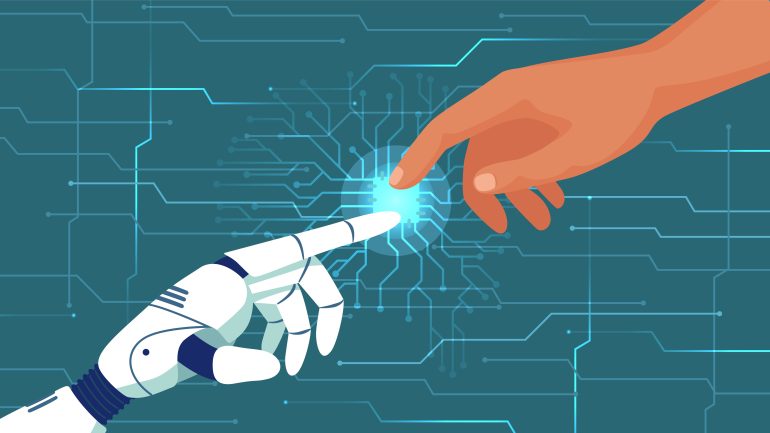Artificial intelligence (AI) isn’t merely a trend – it’s a force reshaping businesses across the globe.
AI fundamentally alters how companies compete and succeed, from streamlining operations to driving innovation. While AI holds immense potential, it’s crucial to approach its implementation responsibly and with a focus on the tangible benefits it offers.
The Evolution of AI: From Concept to Reality
The concept of AI has intrigued thinkers for centuries. Early pioneers like Alan Turing introduced the “Turing Test” to gauge a machine’s ability to exhibit intelligent behaviour. However, limited computing power and unrealistic expectations often hindered progress, leading to periods known as “AI winters.”
Recent breakthroughs have fueled the current AI boom:
- The exponential growth of data: The vast amounts of data generated by businesses and connected devices fuel AI algorithms to learn and improve.
- Advances in cloud computing and powerful processors: Cloud-based solutions and specialized processors (GPUs) offer the computational muscle needed for complex AI models.
- Development of sophisticated machine learning algorithms and neural networks: Techniques like deep learning allow AI systems to tackle problems that were previously considered too complex.
AI’s Transformative Impact Across Industries
AI’s impact is being felt across numerous sectors. Here’s how it’s disrupting and revolutionizing key industries:
- Healthcare:
- AI-assisted image analysis improves the speed and accuracy of diagnoses (Studies indicate AI can match or even surpass human radiologists in specific image analysis tasks).
- AI aids in personalized treatment plans, drug discovery, and even robot-assisted surgery for greater precision.
- Finance:
- AI-powered fraud detection systems learn to identify anomalies with higher accuracy than traditional methods, reducing losses significantly (AI fraud detection potentially decreases losses by up to 40% and false positives by up to 70%).
- Algorithmic trading uses AI to adapt to real-time market conditions, optimizing investment strategies.
- Manufacturing:
- Predictive maintenance anticipates equipment failures, minimizing downtime (AI-based predictive maintenance can reduce costs by up to 30% and breakdowns by up to 70%).
- AI-optimized quality control uses image recognition to detect defects that human inspectors might miss.
- Demand forecasting models powered by AI help manage inventory and supply chains more efficiently.
- Retail:
- AI-driven recommendation engines boost sales by understanding customer preferences (Personalized recommendations can increase sales by up to a 20% increase).
- AI enables dynamic pricing optimization, adjusting prices in response to market conditions.
- Chatbots and virtual assistants provide 24/7 customer support, resolving common issues quickly (AI chatbots can handle up to 80% of routine customer inquiries).
- Customer Service:
- AI-powered sentiment analysis tracks customer satisfaction across social media and feedback channels.
- AI helps personalize support by tailoring service interactions based on customer history.
The Business Case for AI: Unlocking Value and Competitive Advantage
Beyond sector-specific applications, AI offers compelling business benefits:
- Automation: AI automates repetitive, mundane tasks, freeing human employees for higher-value work (A McKinsey report estimates AI could automate up to 45% of current work activities).
- Enhanced Decision-Making: AI models analyze vast datasets, uncovering insights that improve decision-making, forecasting, and resource allocation (Businesses using AI for decision-making experience a 5-15% increase in profitability on average).
- Hyper-Personalization: AI analyzes customer data to deliver tailored recommendations and experiences, boosting engagement and loyalty (Personalized marketing can generate a 20% increase in sales).
- Innovation Acceleration: AI assists researchers and product teams by analyzing scientific literature, patent data, and customer feedback, aiding in identifying new opportunities.
The rise of AI is far from over, and its potential continues to unfold. Businesses that embrace AI strategically position themselves for success in a future where AI-powered efficiency, insights, and innovation become the norm. The key lies in understanding its applications, adopting it responsibly, and constantly adapting to this transformative technology.
